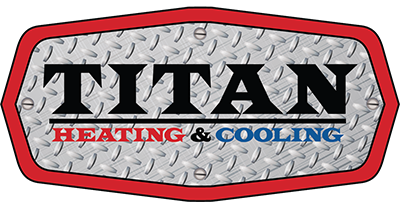[vc_row][vc_column][qodef_custom_font font_family="Archivo" font_size="60px" line_height="70px" font_weight="700" text_align="left" content_custom_font="Why Your Heating Bill’s Unusually High" color="#000000"][vc_column_text]Temperatures drop early in Minnesota and it tends to stay dropped for a while. We all understand how important it is to keep comfortable in the cold months, but sometimes the heating bill can be suspiciously high. Knowing exactly where or why your bill is so high can help you not only understand your electricity habits but can help you keep your costs down as well. Additional laundry You need a lot of protection during the winter including layers, heavy coats, blankets, and more, meaning you will naturally have more loads of laundry. The more frequent you use your washer and dryer, the higher your electricity and heating may be. Poor insulation If your home isn’t properly insulation (older homes tend to not be insulated well), you may be losing heat through leaky windows and doors. Leaks in your home will cause the temperature to not be as warm as intended, causing you to crank up the temperature even more which results in an even higher energy bill. Solution: Increase your insulation by adding weatherstrips around doors or add extra protection with plastic sheeting to your windows. Install a humidifier to raise humidity in house so it feels warmer. Old or inefficient furnace The most important factor to your heating and cooling bill is at its source – your system itself. Solution: If your system is 10-15 years or older and is requiring frequent repairs, you may need to consider replacing it with a new, energy-efficient system. If your system is not older than 10-15 years but has not been serviced recently, it could be struggling to reach optimal performance. Make sure to schedule a repair asap before a minor issue becomes a major one. Make sure to contact Titan’s if you need your system replaced or repaired so that we can get your bills lower and save you money in the long run! Need advice? We’re your one-stop-shop – our knowledgeable techs can help. Call us today 651-714-8931.[/vc_column_text][/vc_column][/vc_row]...
Read More[vc_row][vc_column][qodef_custom_font font_family="Archivo" font_size="60px" line_height="70px" font_weight="700" text_align="left" content_custom_font="Heat Pump vs Furnace – Which Is Best For You?" color="#000000"][vc_column_text] Both heat pumps and furnaces heat your home but they do so in different ways. Heat pump uses electricity and transfer the heat from outdoors to indoors while furnaces use oil or gas to heat your home. Continue reading below to find out their biggest differentiates and figure out what option is best for you. HEAT PUMP BENEFITS • Energy efficient due to running on electricity rather than fuel • Works as both a heater and an air conditioner • Does not produce CO • Circulates humid air • Easy to install • Quiet operation HEAT PUMP CONCERNS • Typically doesn’t produce as much heat as a furnace • May not be energy efficient if temperatures are below freezing • May struggle to produce warm air if it’s too cold outside FURNACE BENEFITS • Can produce hot and toasty temperatures • May be cheaper depending on the size and type • Includes fewer moving pieces which reduces the chances of malfunctioning and repairs FURNACE CONCERNS • May dry out the air • May not be as energy efficient as a heat pump • Requires an air conditioning unit to cool your home THE VERDICT There is no “clear winner” between these two, whether a heat pump or furnace works best for you will largely depend on how the climate is where you live! If you live in a climate that doesn’t see long, cold winters, a heat pump may be the best option for you. If you experience really cold and long winters with temperatures below freezing, you may want to invest in a furnace for more reliable heating. Need help installing or repairing a heat pump or furnace? Titan’s is here to help, we even offer 24/7 emergency services. Call us today for any of your heating needs at 651-714-8931. [/vc_column_text][/vc_column][/vc_row]...
Read More



